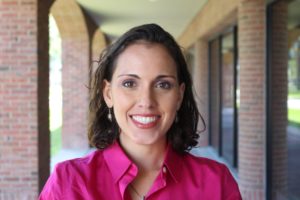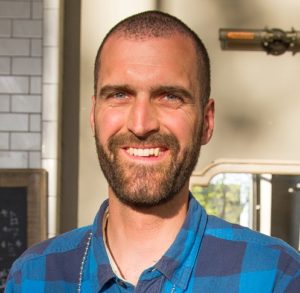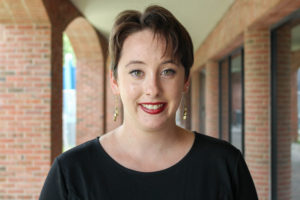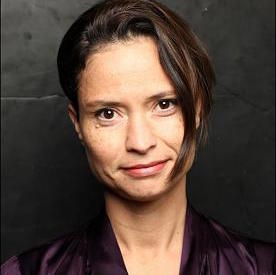The decision to replace a traditional 38-year-old MBA program with the nation’s first one-year AACSB-accredited MBA focused entirely on sustainable innovation seemed risky, but according to Sharma, was perfect timing. A growing demand by companies seeking managers to convert global sustainability challenges into business opportunities for triple bottom line performance – a measure of a company’s financial, social and environmental impact – was undeniable.
“We were fortunate that the Vermont brand and UVM’s strengths and identity resonated with the sustainability ethos,” says Sharma. “While it was a major risk for the school, we decided to take a big leap and go ‘all in’ because we were convinced that the future of business education was to educate managers for tomorrow so that they could develop profitable business solutions to societal needs and demands for the next 50 years.”
The “Best Green MBA” rankings are based on students’ assessments of how well their school is preparing them in environmental/sustainability and social responsibility issues, and for a career in a green job market. The Grossman School of Business’ Sustainable Innovation MBA was also included in The Princeton Review’s list of the 267 Outstanding On-Campus MBA programs. This list was based on data from surveys of 23,000 students attending the schools and of administrators at the graduate schools.
Worldwide practicums with top companies, access to exclusive job network set program apart.
A number of aspects of UVM’s Sustainable Innovation MBA set it apart from other programs. The course curriculum, based entirely on sustainability and innovation, is delivered by world class faculty in this arena under four modules: foundations of management; building a sustainable enterprise; growing a sustainable enterprise; and focusing on sustainability.
Following coursework, students engage in a three-month practicum – a capstone experiential project to address issues such as poverty, climate change, and the environment – with companies like PepsiCo, 1% For the Planet, Philips, Ingersoll Rand, Burton, Keurig, and Facebook. Students traveled to India, Mexico, Ghana, Brazil, Denmark, China, Kenya, and Guatemala to complete practicums, which have led to sustainability and innovation-related jobs at Ben & Jerry’s, King Arthur Flour, Pottery Barn, Seventh Generation and others.
Students also have access to a new career management system called “Launch” designed to propel them into careers in renewable energy, clean tech, affordable health care, inclusive business, entrepreneurship within larger companies, start-ups, and other innovative ventures. The program’s Changemaker Network, composed of more than 125 companies and individuals focused on sustainable business, puts students in direct contact with mentors who help them land jobs within the program’s condensed 12-month format.
“We devote one hundred percent of our energy to creating a robust back end that injects people into an opportunity network that helps students realize their personal and professional dreams,” says professor and Sustainable Innovation MBA co-director Stuart Hart, the world’s leading authority on the implications of environment and poverty for business strategy. “If you are a student interested in figuring out how to use the power of business and enterprise to make a positive impact on the world, that’s all we do.”
The Princeton Review ranking comes on the heels of a No. 8 ranking by Corporate Knights – a Toronto-based media and research company focused on clean capitalism – in its “Better World MBA Rankings.” The UVM program moved up two spots from last year and is now ranked third among U.S. schools, trailing only Duquesne University and MIT’s Sloan School of Management.
Corporate Knights ranks programs based on the number of core courses, institutes and centers, and faculty research produced in the last three years related to sustainability, including corporate responsibility, human rights, and ethics.
“We are excited to teach and help launch the next generation of innovative leaders who will create the kinds of transformative sustainable business models and strategies that the world demands,” says professor and co-director David Jones. “We are also honored to have our unique MBA program recognized by these organizations after just our third cohort of graduates.”





 As members of The Sustainable Innovation MBA’s local chapter, Sarah Healey ‘18 and I attended the national Net Impact conference in Atlanta, GA in late-October.
As members of The Sustainable Innovation MBA’s local chapter, Sarah Healey ‘18 and I attended the national Net Impact conference in Atlanta, GA in late-October.  The
The 
 Sap! was launched by Chas, his cousin Nikita, and his father Charlie, and took flight while Chas was working toward his MBA here at UVM. Their company is fueled by their passion for the maple and birch industry, their dedication to Vermont and the working landscape, and their excitement to build a company that embodies these values.
Sap! was launched by Chas, his cousin Nikita, and his father Charlie, and took flight while Chas was working toward his MBA here at UVM. Their company is fueled by their passion for the maple and birch industry, their dedication to Vermont and the working landscape, and their excitement to build a company that embodies these values.
